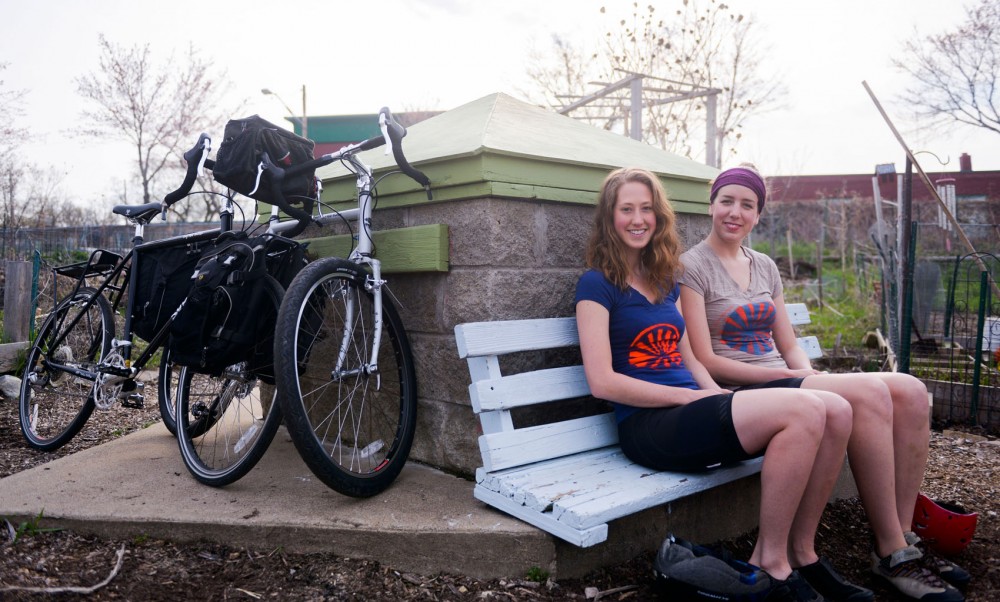University of Minnesota alumna Siri Simons used to daydream in class about biking the Mississippi River Trail to gather stories from farmers about the future of farming in the Midwest.
This summer, her daydream will take shape as Fresh Forks, a two-month bicycle tour along the Mississippi River.
Simons and two other recent college graduates will stop at farms to learn about how the land near the river has changed over time and talk with young people about their role in the future food system — a crucial issue because most U.S. farmers are of older generations, Simons said.
The group will use the ideas generated on the two-month ride to develop a curriculum to teach high school students about growing and distributing food, Simons said.
The ride will start in New Orleans with a community discussion about questions they have for farmers and what they’d like to see out of the project, said Nate Joseph, a recent University of Vermont alumnus who will join the University graduates on the ride.
Joseph, who lives in New Orleans, said though quality food isn’t accessible in his neighborhood, there’s a community effort to eat more sustainably and self-sufficiently.
A big part of the ride will be connecting with youth from areas that don’t have many sustainable agriculture opportunities, he said.
“We really do need to be pushing for more career opportunities and youth involvement,” he said.
To prepare for the ride, Simons said the group has been fundraising for gear and coordinating with farmers and food organizations to work with, all the while trying to fit in training sessions.
Though the late winter has made it difficult to train for the trip, Simons said other riders have told her the first week of the trip will be the real start of training.
During the trek, the Fresh Forks team will stay at small farms and talk to farmers about why they chose their trade, Simons said.
“When we say the word ‘farmer,’ that means so many different things,” said Dayna Burtness, owner of Laughing Loon Farm in Northfield, Minn., which the group will visit in July.
“It can be conventional, it can be organic, it can be bio-dynamic [or] it can be somebody doing backyard gardening, and we all have different impacts on the environment,” she said.
Burtness said she hopes the group will start conversations to help people gain a better understanding of the “good food movement.”
“We need more people on the land growing things that we actually eat; we’re not turning it into fuel or just feeding to cattle,” she said. “I think that understanding will be pretty crucial for everyone to get more in touch with.”


